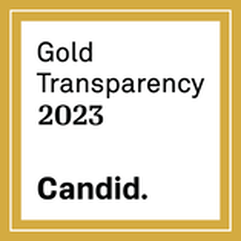|
Thinking about poetry often reminds me of senior year in high school trying to decipher William Shakespeare’s literary classics. I can immediately feel a sense of dread over my shoulders while I entertain these memories. Understanding poetry has always been tedious to me. I acknowledge the importance of epics such as Dante’s Inferno, the Iliad and the Odyssey acting as fundamental introductions to the structures and themes observed in poetry; however, there is a distinctive lack of personable content in the Eurocentric, heteronormative classics. I was slightly disillusioned with poetry due to the overemphasis of analyzing European works and focusing primarily on heterosexuality to validate desirable romantic relationships. I felt that way until my freshman year at CSUB when I had the chance to read Sandra Cisneros’ The House on Mango Street, and I realized that there was poetry that could speak to me while also understanding that there is an expansive collection of poetry waiting to be discovered for others. From that moment, I yearned for depictions of love and loss, redemption and vengeance, and cultural representation in poetic works by people who lived in the United States who expressed their intersecting identities in their verses. In observance of National Poetry Month, in no particular order, I have compiled a list of ten LGBTQ+ poets who published poems from diverse perspectives and backgrounds. This is by no means a comprehensive list, but I also recommend visiting the Academy of American Poets, the Lambda Literary Foundation, and the Poetry Foundation websites for greater access to their literary database in order to help others find poets that speak to them. There are links below to view some of the poets’ websites as well as samples of their work, online shops, and clips of their live performances. Want to continue supporting LGBTQ+ poets of color? Check out the Lambda Literary Foundation’s Journal: Nepantla, a “journal of multiplicity, of continual reinvention…[that] stand[s] against racism, sexism, homophobia, transphobia, ableism, classism, xenophobia, etc…” audre lorde“The Black feminist, lesbian, poet, mother, warrior Audre Lorde (1934-1992) was a native New Yorker and daughter of immigrants. Both her activism and her published work speak to the importance of struggle for liberation among oppressed peoples and of organizing in coalition across differences of race, gender, sexual orientation, class, age and ability. An internationally recognized activist and artist, Audre Lorde was the recipient of many honors and awards, including the Walt Whitman Citation of Merit, which conferred the mantle of New York State poet for 1991-93. In designating her New York State’s Poet Laureate, Governor Mario Cuomo observed: “Her imagination is charged by a sharp sense of racial injustice and cruelty, of sexual prejudice…She cries out against it as the voice of indignant humanity. Audre Lorde is the voice of the eloquent outsider who speaks in a language that can reach and touch people everywhere.” – The Audre Lorde Project Featured Poem: “A Woman Speaks” by Audre Lorde (1997) evolve benton“Evolve Benton (pronouns: they, them, theirs, or my name) is the Assistant Director to both the Multicultural and LGBT Resource Centers at the University of California, San Francisco. Evolve identifies as a black, queer, boi (born obviously incredible). Evolve is a prominent social & racial justice educator, writer, and consultant from Los Angeles, CA. In 2018 Evolve published their first poetry collection SIR: poetry dedicated to boihood & black queer love. Also, they co-produced their first independent film, "The BOI DOC". Evolve describes themselves as an artistic spirit using creativity as a form of liberation.” – Black Queer Gold: Evolve Benton Featured Poem: “A Dedication to Ermias Asghedom” by Evolve Benton (2019) franny choi“Franny Choi is a queer, Korean-American poet, playwright, teacher, organizer, pottymouth, GryffinClaw, and general overachiever. She is the author of two poetry collections, Soft Science (Alice James Books, 2019) and Floating, Brilliant, Gone (Write Bloody Publishing, 2014), as well as a chapbook, Death by Sex Machine (Sibling Rivalry Press, 2017). She has received awards from the Poetry Foundation and the Helen Zell Writers Program, as well as fellowships from the Vermont Studio Center and the Rhode Island State Council on the Arts. Her poems have appeared in journals including Poetry Magazine, American Poetry Review, and New England Review, and her work has been featured by the Huffington Post, Ms. Magazine, PBS NewsHour, and Angry Asian Man.” – Franny Choi: About Featured Poem: “To the Man Who Shouted ‘I Like Pork Fried Rice” at Me on the Street” by Franny Choi (2014) alan ginsberg“Renowned poet, world traveler, spiritual seeker, founding member of a major literary movement, champion of human and civil rights, photographer and songwriter, political gadfly, teacher and co-founder of a poetics school. Allen Ginsberg (1926-1997) defied simple classification…the foundation of Ginsberg’s work was the notion that one’s individual thoughts and experiences resonated among the masses. “It occurs to me that I am America”, Ginsberg wrote, and while the statement was intended to be humorous, it also illustrated his idea that democracy begins with the raising of a single voice…The “Howl” – Ginsberg’s most notable work - obscenity trial served as a catalyst in fomenting Ginsberg’s lifelong obsession with First Amendment issues in particular, and political activism in general. Using his fame as an international podium, Ginsberg spoke out on such controversial issues as the Vietnam War, gay rights (he listed his lifelong companion, Peter Orlovsky, as his spouse in his Who’s Who entry), and drugs (he was an early participant in Timothy Leary’s psilocybin and LSD experiments).” – The Allen Ginsberg Project Featured Poem: “Kaddish” by Allen Ginsberg (1959) eileen myles“Eileen Myles came to New York from Boston in 1974 to be a poet, subsequently a novelist, public talker and art journalist. A Sagittarius, their twenty books include evolution (poems), Afterglow (a dog memoir), a 2017 re-issue of Cool for You, I Must Be Living Twice/new and selected poems, and Chelsea Girls. Eileen is the recipient of a Guggenheim Fellowship, an Andy Warhol/Creative Capital Arts Writers grant, four Lambda Book Awards, the Shelley Prize from the PSA, and a poetry award from the Foundation for Contemporary Arts. In 2016, Myles received a Creative Capital grant and the Clark Prize for excellence in art writing. In 2019 they'll be teaching at NYU and Naropa University and they live in New York and Marfa, TX.” – Eileen Myles, Bio, 2019 Featured Poem: “our happiness” – by Eileen Myles (1949) ifti nasim“This Chicagoan, born in Pakistan, has written gay-related poetry in Urdu said to be the first direct statement of “gay longings and desires” ever published in that language. The publication of Ifti Nasim‘s book of poetry, Narman (a Persian word for “hermaphrodite”, or half-man, half-woman), has initiated both wild praise and hateful criticism. Narman has also been distributed in Urdu in India and in the West (in England, Norway, Sweden, and Germany). In December 2000, he published Myrmecophile. [Narman’s] courageous publication met with revilement but critical acclaim and inspired other Pakistan poets. He co-founded Sangat/Chicago and has been president of the South Asian Performing Arts Council of America.” – The Chicago LGBT Hall of Fame Featured Poem: “My Father” – by Iftikhar Nasim Ifti june jordan“June Jordan (1936 - 2002) was a poet, activist, journalist, essayist and teacher. Prolific and passionate, she was an influential voice who lived and wrote on the frontlines of American poetry, international political vision and human moral witness. The author of many award-winning books, she traveled widely to read her poems and to proclaim a vision of liberation for all people. Dynamic, rebellious, and courageous, June Jordan was, and still is, a lyrical catalyst for change.” – About June: Bio Featured Poem: “Poem for Haruko” by June Jordan (2005) alok vaid-menon“ALOK (they/them) is a gender non-conforming performance artist, writer, and educator. Their eclectic style and poetic challenge to the gender binary have been internationally renowned. They were recently the youngest recipient of the Live Works Performance Act Award granted to ten performance artists across the world. In 2017 they released their inaugural poetry chapbook FEMME IN PUBLIC. They have been featured on HBO, MTV, The Guardian, National Geographic, The New York Times, and The New Yorker and have presented their work at 400 venues in more than 40 countries.” – Alok V Menon Featured Poem: “i am used to this” – by Alok Vaid-Menon (2016) ching-in chen“Ching-In Chen is the author of The Heart's Traffic (Arktoi/Red Hen Press, 2009) and recombinant (Kelsey Street Press, 2017). Born of Chinese immigrants, they are a Kundiman, Lambda, Callaloo and Watering Hole Fellow and a member of the Macondo and Voices of Our Nations Arts Foundations writing communities. A community organizer, they have worked in the Asian American communities of San Francisco, Oakland, Riverside and Boston, as well as helped organize the third national Asian Pacific American Spoken Word and Poetry Summit in Boston. Chen is also the co-editor of The Revolution Starts at Home: Confronting Intimate Violence Within Activist Communities (South End Press, 2011) and Here Is a Pen: an Anthology of West Coast Kundiman Poets (Achiote Press, 2009).” – Ching-In Chen: Bio Featured Poem: “Simulacra” – by Ching-In Chen Lorenzo Herrera y Lozano“A Queer Xicano writer of Rarámuri descent, Herrera y Lozano is the author of Amorcito Maricón (Kórima Press, 2014) and Santo de la Pata Alzada: Poems from the Queer/Xicano/Positive Pen (Evelyn Street Press, 2005)…Along with Adelina Anthony and Dino Foxx, Lorenzo is a co-author of Tragic Bitches: An Experiment in Queer Xicana & Xicano Performance Poetry (Kórima Press, 2011), and the editor of Queer Codex: Chile Love(allgo/Evelyn Street Press, 2004), an anthology of visual and literary works by queer men of color from across the U.S.; and, Queer Codex: Rooted (allgo/Evelyn Street Press, 2008), a mix-genre anthology by queer women and trans-identified writers and visual artists.” – Lorenzo Herrera y Lozano: Bio Featured Poem: “You Bring Out the Joto in Me” by Lorenzo Herrera y Lozano (2011) about the author: jennifer valencia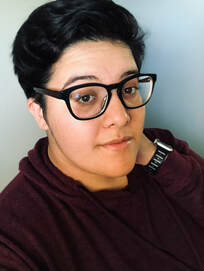 Cat dad, board game enthusiast and support class party member, Jennifer Valencia is a local volunteer blogger and staffer at The Center for Sexuality and Gender Diversity. With an interest in topics pertaining to critical diversity and feminist theory, Jennifer has completed a Bachelor’s Degree in Interdisciplinary Studies with a concentration in Women, Gender, and Sexuality Studies from Cal State, Bakersfield. Born and raised in Los Angeles, they have lived in Bakersfield for over a decade and considers Kern County home.
0 Comments
April is National Volunteer Month and we want to take this moment to salute to all of our volunteers who continue to make The Center as vibrant as it is! Your dedication makes a huge impact to the success of The Center and we thank you for being your wonderful self. To further commemorate this occasion, let’s get to know a little bit more about one of our awesome volunteers, Jose Hernandez! 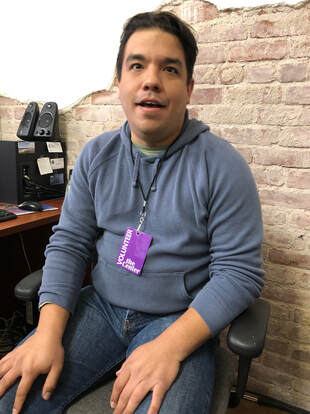 How long have you been a volunteer with The Center? Going on 3 months. What motivated you to volunteer at The Center? I’ve always volunteered in some form or another. But recently I’ve been struggling with depression and usually the best remedy is to do good and integrate yourself to people. Why is volunteering important to you? Always considered it to be a selfish thing. Taking the time and the energy to authentically help someone, to put a smile on their face, it’s gratifying. What’s your favourite thing about volunteering? Mostly the people. You get to meet people. Whether you’re just meeting or touching base after a long time it’s always about the people. The energies you exchange, the stories you hear, the connections you make - they’re awesome. Aside from volunteering, what do you enjoy doing in your spare time? Mostly trying to make a better person of myself. I listen podcasts; often queer-centric podcasts, work out, zen out doing yard work, or vegging out watching geek stuff. Tell us your most favourite thing about Bakersfield? Winter, food downtown, the random taco stands you find driving around some residential areas, the summer dusk; sometimes the light catches the smog in such a way that makes it like really colorful, and the music. What’s your favourite event/shop/restaurant in Bakersfield? Tejón Outlets, menudo cook off, and The Mark. What place(s) do you enjoy visiting outside of Bakersfield? Bravo Farms, Tachi Palace Casino, Tulare because you can get really good Portuguese food and pastries there. What’s on your playlist? Same things I’ve been listening to my whole life. Billie Holliday, Joni Mitchell, Dave Mathews, Scissor Sisters, and the soundtrack to Buffy’s “Once More With Feeling” episode, I sometimes listen to newish stuff. I just discovered Lizzo. What shows are you currently streaming on Netflix? I usually swing from optimistic utopian future to pessimistic post apocalyptic future. So a lot. My favorites that recommend to people, Sense8, Altered Carbon, Call the Midwife, The Crown, and Casa de Flores. I’m a sucker for novellas. 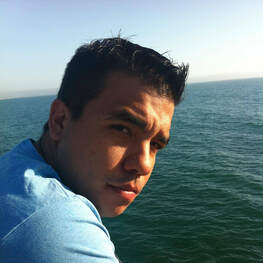 What is your favourite movie of all time and why? Interview with A Vampire. It speaks to me - an allegory of HIV, growth through pain, and a cautionary tale of hubris. Who’s your favourite super hero? I’m a geek so I have several. Superman, Booster Gold, Batman, Wonder Woman, Zatana and the list could go on, but if I had to choose one it would be Batman. Although altruism and optimism are great, the most useful and real life application of morals come from him. about the authorR. Velasco is a Canadian writer new to Bakersfield. She is actively seeking ways to raise community consciousness about LGBTQ issues and topics, one blog post at a time. She is also part of The Center’s Women Support Group.
This piece is an expressive autobiographical account from one of our blog's newest volunteer writers.
Trigger Warning: The following content discusses frankly the reality of living through abuse and sexual assault, and the realities of PTSD. To proceed with reading the piece, click the link below saying "Read More". Looking for something new to read? The Center on 18th St. has a library full of books on LGBTQ+ subjects that can be checked out for up to two weeks. Everyone is welcome to check out up to two books at a time, or you can come by to The Center during regular hours and read in one of the comfy chairs and couches available. To see the catalog of what's available, check out the library's online catalog. a few examples of books from our shelves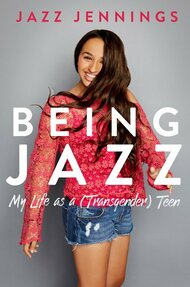 Being Jazz: My Life as a (Transgender) Teen By Jazz Jennings Jazz Jennings is one of the youngest and most prominent voices in the national discussion about gender identity. At the age of five, Jazz transitioned to life as a girl, with the support of her parents. A year later, her parents allowed her to share her incredible journey in her first Barbara Walters interview, aired at a time when the public was much less knowledgeable or accepting of the transgender community. This groundbreaking interview was followed over the years by other high-profile interviews, a documentary, the launch of her YouTube channel, a picture book, and her own reality TV series—I Am Jazz—making her one of the most recognizable activists for transgender teens, children, and adults. In her remarkable memoir, Jazz reflects on these very public experiences and how they have helped shape the mainstream attitude toward the transgender community. But it hasn’t all been easy. Jazz has faced many challenges, bullying, discrimination, and rejection, yet she perseveres as she educates others about her life as a transgender teen. Through it all, her family has been beside her on this journey, standing together against those who don't understand the true meaning of tolerance and unconditional love. Now Jazz must learn to navigate the physical, social, and emotional upheavals of adolescence—particularly high school—complicated by the unique challenges of being a transgender teen. Making the journey from girl to woman is never easy—especially when you began your life in a boy’s body. 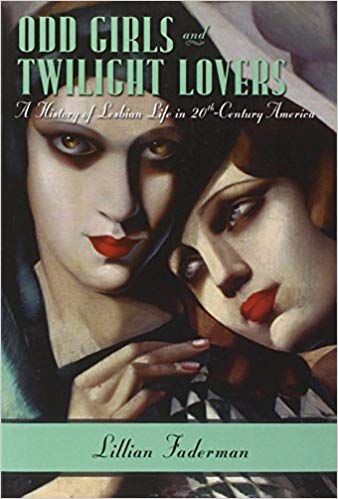 Odd Girls and Twilight Lovers: A History of Lesbian Life in Twentieth-Century America by Lillian Faderman As Lillian Faderman writes, there are "no constants with regard to lesbianism," except that lesbians prefer women. In this groundbreaking book, she reclaims the history of lesbian life in twentieth-century America, tracing the evolution of lesbian identity and subcultures from early networks to more recent diverse lifestyles. She draws from journals, unpublished manuscripts, songs, media accounts, novels, medical literature, pop culture artifacts, and oral histories by lesbians of all ages and backgrounds, uncovering a narrative of uncommon depth and originality. 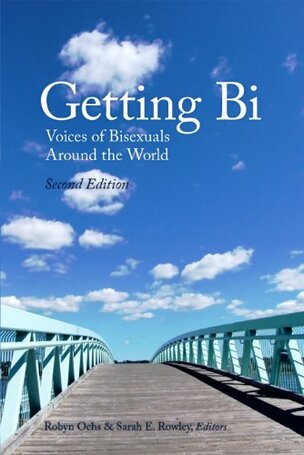 Getting Bi: Voices of Bisexuals Around the World by Robyn Ochs, Sarah E. Rowley (Editor) Getting Bi: Voices of Bisexuals Around the World, Second Edition, edited by Robyn Ochs and Sarah Rowley, is the broadest single collection of bisexual literature available today. Getting Bi collects 220 essays from around the world that explore bisexual identity. Topics include coming out, relationships, politics, community, and more. The book also addresses the intersection of bisexuality with race, class, ethnicity, gender identity, disability and national identity. Authors from 42 countries discuss bisexuality from personal perspectives and their own cultural contexts providing insight into societal views on bisexuality from countries ranging from Colombia to China. How To Be An Ally: Learning the difference between gender identity and sexual orientation (part 1)4/14/2019 One of the most important parts of being an ally to the LGBTQ+ community is understanding. Even within our own community, to be an ally to each other, it's important that we make an effort to understand the nuances of people's identities, so that we don't make assumptions that could be hurtful or even harmful. And in order to understand someone, we have to listen to them.
I know that when I came out to my friends and family, the most important thing to me was being heard. I wasn't waiting for them to say the perfect thing or judging them based on using the wrong word. What I was looking for was general acceptance, not just uneasy tolerance. I was looking for a chance to talk about my experiences without being questioned or told I was wrong. The simple chance to speak my story without feeling I had to defend it was priceless to me. At the time when I first came out, I hadn't heard a lot of the differences between sexual orientation and gender identity explained. I hadn't studied any of this stuff in school or on my own. I was only a little bit familiar with the definitions of words like "cisgender" and "transgender". Back in 2009, I had only very recently heard someone use the word "pansexual" to describe themselves. (The auto-correct spelling program for this website still doesn't recognize the words "pansexual" or "cisgender" yet. My post is full of red squiggly underlines.) To this day I am still learning. Thankfully, there are a lot more resources online and in-person nowadays that make it much easier to do. In this post, I'm going to share some basic definitions and answers to questions that I've learned over the past few years. What is gender identity? Gender identity is something everyone has - whether you are LGBTQ+ or not. Anyone reading this has their own ideas of what gender means to them, and whether the gender people perceive them as having matches their internal identity or not. What is sexual orientation? Sexual orientation describes who you are attracted to. Straight people and gay people alike have sexual orientations. Some words describing sexual orientation are: heterosexual, homosexual, bisexual, asexual and pansexual. What is the difference between gender identity and sexual orientation? Sexual orientation refers to who you are attracted to, not your gender identity. Any gender identity can correspond to a range of different sexual orientations. However, the word you use to describe your sexuality often depends on your gender identity. For example, if you identify as a woman, and you are only attracted to others who identify as women, but not to those who identify as men, then most likely you would use the term "lesbian" to describe your sexual orientation. Your gender identity may match the one other people see you as - your parents, doctors and so on - and fit with the way you were treated as you were brought up. Or your gender identity may be at odds with how other people perceive you. You may have been brought up being treated like you are one gender identity, when in reality you don't feel like that identity at all. Here are some common definitions, with an (S) if they refer to sexual orientation and a (G) if they refer to a gender identity: Lesbian (S): A woman who is attracted to other women exclusively. Gay man (S): A man who is attracted to other men exclusively. Bisexual (S): Someone who is attracted to people of their own gender as well as those of other genders. Gay (S): A catch-all term for people who are attracted to the person of the same gender they are. Cisgender (G): [Pronounced "sis-gender"; like the "sis" sound in "sister"] A person who identifies with the gender they were assigned at birth (almost always based on how doctors identified their biological sex). Transgender (G): A person who does not identify with the gender they were assigned at birth. If you grew up in the 1970's, 1980's and 1990's, you probably heard these some or all of these terms before and are familiar with their definitions. However, over the past 20 or so years, there has been a lot of progress made in understanding and talking about people who do not fit these traditional definitions. Our vocabularies have expanded wonderfully. Before we talk about the newer terms you may have heard (we'll save that for the next post), let's go over some of the core concepts you'll need to know in order to understand them. Sex: A set of characteristics associated with reproduction and biology that generally assign individuals into binary categories of either “male” and “female.” Typically this is done at birth by the doctors in the hospital. Most of us are brought up as our assigned sex, with the assumption that our assigned sex matches our gender identity. For many people, this is fine. For others, whose gender identity does not match their assigned sex, the experience can be horribly confusing and painful. Intersex: Intersex is a general term used for a variety of conditions in which a person is born with a reproductive or sexual anatomy that doesn't seem to fit the typical definitions of female or male. It can be hard to pinpoint how often this happens in our general population, depending on what exact definition you use to determine who is and isn't considered to have an intersex condition, but in general the reported numbers from hospitals are around at least 1 in 2,000 babies born, probably more accurately 1 in 1,000. People with intersex conditions may identify as either cisgender or transgender. Just because a person is born with an intersex condition does not mean they consider themselves transgender. Gender Identity: Our inward experience of our gender. This does not depend on other people but is our own perception of who we are. You do not have to act a certain way, dress a certain way or have surgery to confirm your gender identity. Everyone has a right to their own identity and self-concept. Some people see the world as having two binary genders, and so they will only identify as one or the other: a man or a woman. Others see the world as having a spectrum of genders, and may place themselves somewhere between two binaries of man and woman: as closer to one than the other; as equally both; or as neither. Finally, some people reject the concept of fixed genders altogether, and don't believe in a gender binary or in a gender spectrum. The most important thing to do when talking to someone about their gender identity is to listen. We all have a right to think about the world and ourselves in our own unique way. What we should never do is tell someone else their self-concept is wrong, just as we should never entertain invalidation from other people. Gender Expression or Presentation: Our outward appearance as it affects how people think about our gender identity. This includes the clothing we wear, the words we use, the type of voice we have, our mannerisms, our posture, our haircuts, shaving or not shaving body hair, wearing or not wearing make up - there are many ways in which we present who we are to the world. All people have a gender expression, whether they are cisgender or transgender, straight or gay. We are all allowed to have a gender expression that does not match our gender identity. For many reasons, but particularly because of discrimination against gender nonconforming and transgender individuals, people may choose to present their gender as one way to the public, yet hold a very different identity inside. It is not lying or dishonest to express your gender one way for the public, while maintaining your own private gender identity. Sometimes people may present their gender one way at work, for example, yet express themselves a different way among their friends or within a safe community. Everyone has a right to their gender identity regardless of whether it matches their gender presentation sometimes, all of the time or none of the time. Gender Nonconforming: A broad term for people who don't fit social expectations of their gender. This very much depends on the society they were raised in and the corresponding social norms. People can be gender nonconforming through their clothing, attitudes, hobbies and any other area where their society divides things along gender lines. Being gender nonconforming does not mean a person is gay or transgender. A heterosexual cisgender woman can be gender nonconforming by wearing clothing usually worn by men in her culture. Similarly, a heterosexual cisgender man may enjoy hobbies that his society usually presumes are "for women". This does not make him transgender or gay. He is simply a gender nonconforming person. Not conforming to gender stereotypes does not change one's sexual orientation or gender identity in the slightest. I hope that was helpful! In the next part of this series, I'll go over what some of the newer words and terms mean, and talk more about what my own identity means to me. I had spent a really long time thinking I’m an individual, so different than the rest until I created an online dating account and saw that eight other people put all the same things on their profiles about how they love horror films and like to go on adventures. You might think that’s good because I have things in common with other women, but I think we all would like to stand out of the crowd a little bit, especially in the dating game. The truth is we all are unique and important but sometimes it gets hard to see that. People might not treat you with respect, they might not understand you, judge you, etc. The key to being above that is to love yourself. Society has a way of making you feel less important than you actually are. One of the best lessons I’ve learned on my little “adventure” of life was the importance of finding yourself. It is essential not only for self-respect but happiness. I would even say that its essential for life. Before I realized I was a lesbian, life was overwhelmingly confusing and stressful. I spent most of my teens hating myself and thinking I was a freak because I was bullied pretty bad in middle school and I had a crush on this girl, I saw as superior to me, and I was in denial about for a year. That was my train of thought and I felt like I was a burden on my family and friends. I cringe now thinking about this but the truth was that I didn’t understand myself. I decided to believe all the horrible things people thought of me instead of having opinions of my own. I decided to see myself through the eyes of people who intentionally wanted to hurt me. Once I discovered this my life changed significantly. Not only did I begin to see myself more positively, I slowly learned to accept that I liked women and to be kind to myself. That is why learning to reflect on and respect yourself is very important. I began writing out my thoughts out on paper. I discovered that not only do I have flaws but they are a part of me just like the positive is a part of me. I also learned that being a lesbian is not a flaw, just a part of who I am. For me personally, I still struggle with self-love, but I’m aware now that my mind also likes to put me down and reflect on the negative. The trick is to realize you are doing this and know yourself. The human brain already tends to focus on the negative, we do that enough to ourselves so don’t let others add onto that. Find out what you want in life and its ok to be unsure. We don’t need to, but we should make the best out of our lives. If you didn’t hear this already today: you are amazing in your own way, be kinder to yourself, and follow your passions. about the author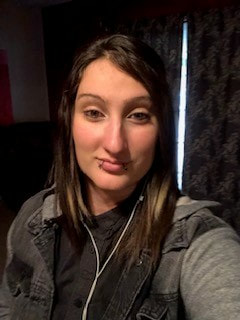 Leslie Khattarchebli has been in Bakersfield for 9 years. She's originally from Glendale, California and passionately loves coffee. |
The Center for Sexuality & Gender Diversity (The Center) is a Community-Based Organization and 501(c)(3) nonprofit organization serving the 2SLGBTQIA+ community in Kern County.
Receive Monthly UpdatesWe have so many exciting things going on, be the first to find out!
|
Helpful Links |
Get Involved |
Contact Us |
Certified as Financially Sound and TransparentEIN: 45-3709449
|
|
© The Center for Sexuality & Gender Diversity 2018
|
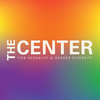

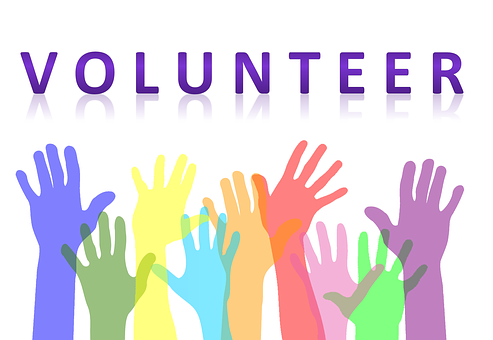
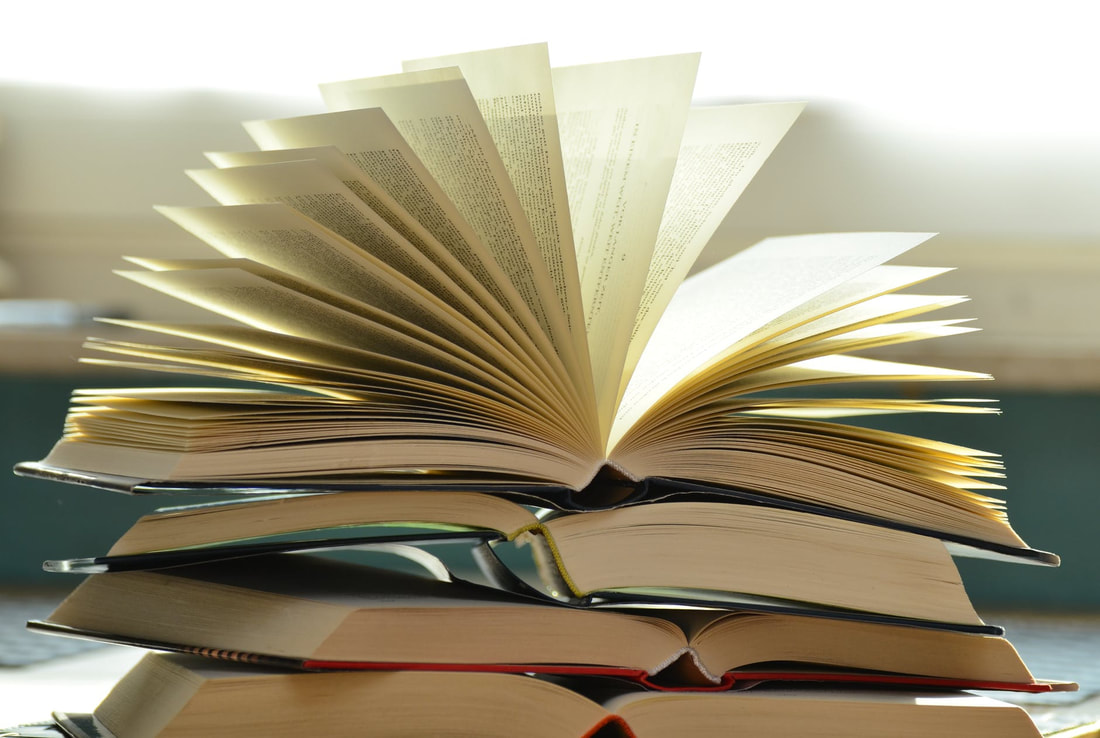
 RSS Feed
RSS Feed


